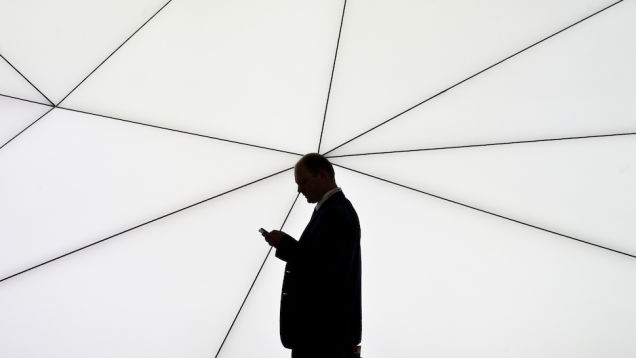A federal appeals court just took a dump on privacy. They reversed the 2013 trial court decision that called the National Security Agency’s bulk data collection unconstitutional. The ban has been lifted. This is good news for the NSA and people with panopticon fetishes.
For everyone else, it’s a setback.
In 2013, U.S. District Court Judge Richard Leon blasted the NSA for its data collection in a scathing ruling, calling it “Orwellian” and comparing it to science fiction. That ruling was a blow to the NSA’s program, and this reversal is a blow to privacy advocates. Even though it doesn’t alter official plans to wind down aspects of the NSA’s dragnet later this year, it leaves a lot more room for the government to change those plans, since this means the NSA can legally keep collecting data under Section 215 of the Patriot Act as long as it damn well pleases.
The most frustrating part: the court’s decision didn’t comment on whether mass surveillance of citizens actually violates the Fourth Amendment or not. It hinged on a procedural issue, whether the plaintiff had provided enough evidence, as the Washington Post notes:
A three-judge panel for the U.S. Court of Appeals for the District of Columbia ruled that public interest lawyer Larry Klayman, the founder of Freedom Watch, has not proved his own phone records were collected by the NSA — and so has not met a condition of bringing the lawsuit.
Since Klayman was suing, he had to show evidence that his data was being secretly collected. The problem here was that the judges didn’t think he did that. Now the case is getting kicked back down into lower courts, where Klayman will have another chance to prove he has enough evidence to move forward.
The NSA’s labyrinthine, secretive surveillance infrastructure is a dark farce in general, but this is an especially paradoxical situation. Klayman wants to sue the government for illegally spying on a vast number of citizens, but the best way to get proof that judges will accept is to get it from the NSA. But the NSA has no obligation to give him the information, since it can always claim that it’s too sensitive for public consumption. It’s like being required to convince a murderer to give you the gun before you’re able to arrest them.
One of the judges, U.S. Circuit Judge Janice Rogers Brown, even acknowledged that the government wasn’t likely to hand Klayman the irrefutable evidence he needs:
“Such is the nature of the government’s privileged control over certain classes of information,” she wrote. “Regulations of this sort may frustrate the inquisitive citizen, but that does not make them illegal or illegitimate.”
Any inquisitive citizen should be beyond frustrated right now.
Image via Getty
